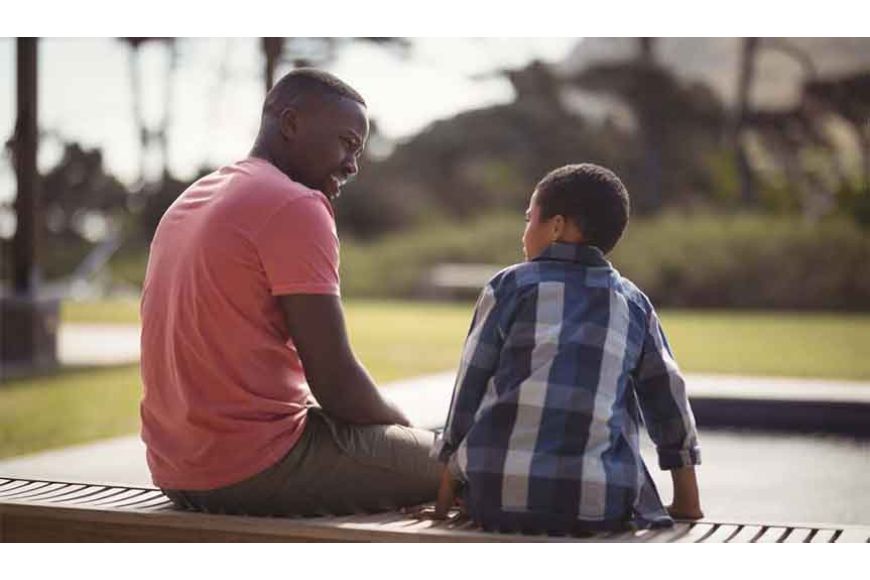5 Tips for Talking to Your Kids About Post-Quarantine Safety

There’s no question about it: We now live in a changed world. The COVID-19 pandemic has swept across the globe, infecting millions and killing tens of thousands. The good news is that the infection may be slowing in some areas. Indeed, many sections of the world are laying out plans on how to exit quarantine and return to some semblance of real life. However, that doesn't mean we will return to "normal" - indeed, odds are good that the world has truly changed forever. That applies to all of us - from adults to kids - and their pain is not something we can afford to discount. As parents, we must now explain to our children how the world is different. In doing so, we must explain to them what has changed and why it is important that we change our behavior - and do so without unduly frightening them. Here are some specific tips on how to talk to your kids about post-quarantine safety.
1) Use Developmentally Appropriate Language
It goes without saying that you would talk to a five-year-old differently than you would talk to a nine-year-old. As a parent, you probably know what language works best for your child. However, it's important to remember that you don't want to unintentionally scare them. Don’t volunteer information that is unnecessary1. If you feel the need to explain the science behind the virus, make sure you do so in a way that they can understand. Furthermore, don't get into facts, figures, or statistics unless you know your child can understand them.
2) Listen to Them and Ask Them Questions
When it comes to easing a child's fears, the best thing you can do is let them lead the conversation2. Instead of launching into a long-winded speech about what will happen to them in the future and what the world will look like, ask them what they know, how they feel, and what questions they may have. From there, you can use their fears and concerns, guiding the conversation as you see appropriate.
3) Make Sure to Give Them a Sense of Control
One thing that typically leads to a growing sense of anxiety, in both kids and adults, is a loss of control. It is important to make sure that kids believe that they should have as much control over their own health as possible. That's not to say that you should lie to them. But that does mean that you should be as honest with them as possible. Tell them the truth: Nothing can absolutely, positively guarantee health. However, there are things that they can do that will make them much less likely to be sick and much more likely to be safe. This includes measures like proper handwashing, wearing a mask, taking proper medication given to them by a pharmacy, etc.
Looking to save money at the pharmacy?.
4) Make Sure They Know You'll Be There for Them
Children - particularly younger children - want and crave support. One of the things you can do is reiterate that, no matter what this strange new world brings, you'll be there to experience it with your child and answer any questions they have. You shouldn't try to sugarcoat things, but you need to tell your kids that whatever comes next, you'll be there with them, holding their hand and protecting them as best you can. This reassurance can go a long way towards convincing a child that they will be protected.
5) Show Them the World's Goodness
This new world can be frightening, and one of the best anecdotes to that fright is a reminder of all the goodness in the world. Obviously, you shouldn't be focusing on stories of overwhelmed hospitals or people dying. Make sure to show your child stories about all the goodness that has come as a result of the pandemic3 and discuss how so many people have done wonderful things. This should include first responders and medical staff who are providing help, of course, but it can be so much more than that.
After all, the coronavirus has resulted in countless acts of kindness4 from ordinary Americans, including everything from people who are making masks to survivors of the coronavirus donating their plasma. This goodness has extended to pharmacy owners who participate in discount medication savings programs, making sure that people who are economically suffering can still afford to purchase their drugs. Make sure to tell your kids these stories so they understand that countless people in the world have become helpers.
From there, ask what they can do to show kindness in a post COVID-19 world. What can they do to help people who are feeling scared or alone feel better? This is not only a life lesson but contributes to the idea of recovery in a post-coronavirus universe. Just like adults, our kids will have very real fears and concerns about how to adjust to a post quarantine world. It will be hard for them, and they will need to be shown kindness and patience. The good news is that there are absolutely things we can do to help our kids adjust and move on.
Save on Your Family's Prescriptions
America’s Pharmacy can help you save on your family's medications. Search online for your prescription to find the best savings near to you. You can also download our mobile app to save on the go.
Sources:
1. https://iocdf.org/covid19/talking-to-kids-about-covid-19/
2. https://www.fatherly.com/parenting/the-best-parenting-tips-for-comforting-frightened-children/
4. https://greatergood.berkeley.edu/article/item/eight_acts_of_goodness_amid_the_covid_19_outbreak
